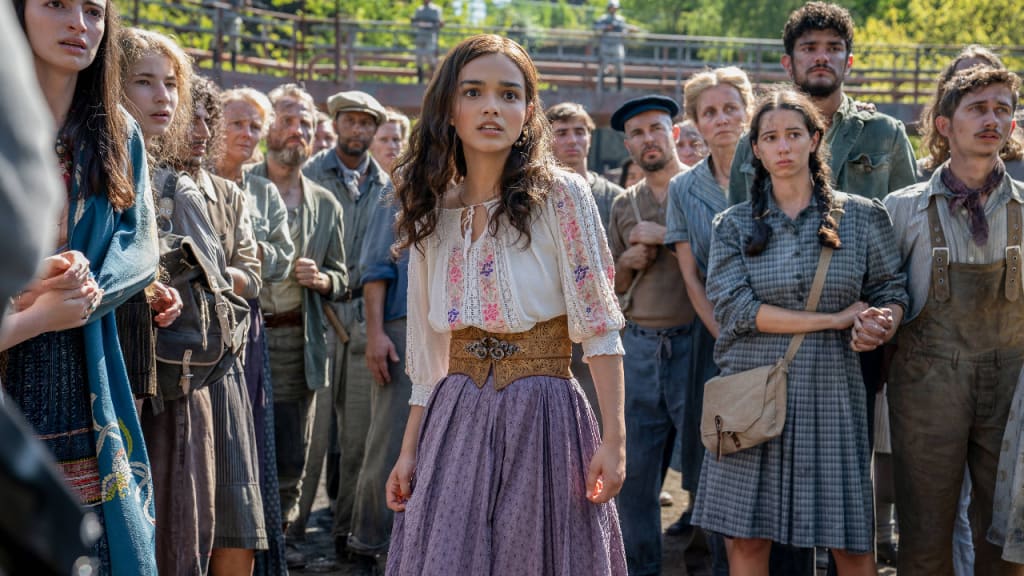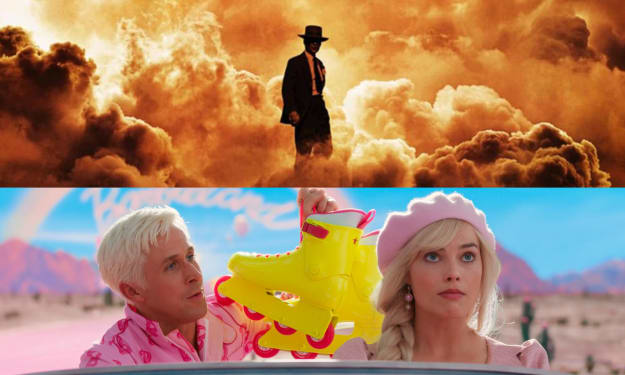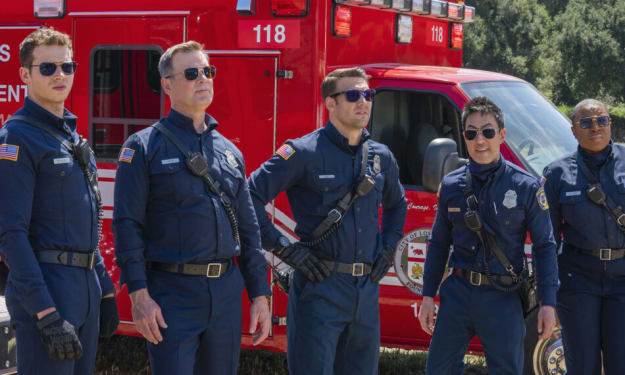It's Impossible to Disconnect from Reality While Watching 'The Hunger Games: The Ballad of Songbirds and Snakes'
Coriolanus Snow said the whole world is an Arena, and we need the games to remind us of what we are and what we’re capable of. It’s hard to disconnect from reality when the fictional world reflects it so vividly.

Coriolanus Snow said the whole world is an Arena, and we need the games to remind us of what we are and what we’re capable of. It’s hard to disconnect from reality when the fictional world reflects it so vividly.
I'd like to preface this review with honesty - I haven't seen or read The Hunger Games by Suzanne Collins before I watched The Ballad of Songbirds and Snakes. Dystopian movies aren't my thing, as they embody everything all at once: a reminder of our past, a reflection of our present, or a glimpse of our future.
The prequel to The Hunger Games series is a humanization of the antagonist, President Coriolanus Snow (Donald Sutherland), in his young adult years, portrayed by Tom Blyth. It explores his relationship as a mentor to the tribute, the Songbird Lucy Gray Baird, played by Rachel Zegler. The story delves into the roots of the eventual rebellion successfully led by Katniss Everdeen (Jennifer Lawrence), the only other female District 12 victor apart from the initial victor, Lucy Gray Baird. Despite not having read or seen the previous Hunger Games, I know enough that witnessing The Ballad of Songbirds and Snakes unfold felt almost poetic to me. Consequently, it was challenging to disconnect from reality while watching it, given the current global political climate. Therefore, this essay serves as a combination of reflection and review; the film earned it. Although the film ran for almost 3 hours, it kept me engaged and thoughtful throughout. Here are my reflections:
FASHION IS A STATEMENT
In The Ballad of Songbirds and Snakes, Coriolanus Snow faced ridicule for his attire, crafted by his cousin Tigris from literal scraps. While it bestowed upon him a sharp appearance, in the eyes of his affluent peers, it only served to solidify his status as an outcast and a disgraced rebel's son, despite his academic excellence.
There are numerous analyses about the symbolic costumes Katniss and the other characters wore in the earlier Hunger Games. Even though I haven’t read or seen most of this media, I am familiarized with it. In The Hunger Games, clothing consistently bore symbolic weight. For my visit to the cinema, as I always do, I chose a themed outfit: a thrifted crocodile-printed blouse, black slacks, thrifted boots, and for accessories, gifted black earrings, a pink quartz bracelet, and a watermelon slice necklace that I bead-embroidered myself. In the Philippines, we call corrupt politicians crocodiles, and a watermelon symbol is now more than just an emoji or a fruit.

What other time than now to game the algorithms, posting a seemingly harmless movie day selfie but actually using hashtags that help elevate important causes (Yes, #CEASEFIRENOW and #FreePalestine). Choosing attire for public display is a deliberate act. Remember the controversy when Melania Trump wore the infamous "I really don’t care, do u?" jacket during her visit to a migrant child detention center amidst a migrant crisis; it was deemed tactless. Whether a result of a careless fashion faux pas or a deliberate choice, the statement became all the more grotesque, especially considering the influential position she held.

In a similar fashion, Snow's ascent to power prompted him to start wearing deeper shades of red in his suits and robes, perhaps as a sign of the increasing amount of blood he spilled to get there.
A REMINDER OF OUR PAST
Throughout history, numerous wars have unfolded, leaving behind a trail of destruction, yet very little accountability and even fewer reparations. These conflicts typically involved the "strong" exerting their dominance over the weak, often under the guise of promoting "freedom," "liberation," "democracy," or suppressing a so-called "rebellion."
For millennials and Gen Zs, a defining war that shaped our perceptions was the American invasion of Iraq. As subsequent history has revealed, this intervention was founded on lies. Unfortunately, during that time, the absence of social media meant information didn't circulate as rapidly, and the overwhelming emotions stemming from the 9/11 tragedy rendered many people irrational and bloodthirsty. Today, with the advent of social media, attempts to manipulate narratives by those in power face greater challenges. Despite their continued efforts to propagate falsehoods, they hope that the general public remains either non-discerning, self-absorbed, or too preoccupied with their own problems to care.
As the old adage goes, those that don’t want you to know history absolutely intend to repeat it. Therefore, it's crucial to persistently seek the truth and resist succumbing to manipulated narratives.
A REFLECTION OF OUR PRESENT
Another thing that bothers me about dystopian fiction is that it hits too close to home. Authors seem unable to conjure anything as creative or heinous as what people have already done, or even worse. Recently, I stumbled upon a clip from "The Hunger Games: Mockingjay Part 1" with a caption drawing parallels to the State of Israel bombing civilian infrastructures in Gaza, purportedly designated as terrorist headquarters.
If you're able to read this, consider yourself akin to someone from the Capitol. Even if you lack substantial wealth, you're inherently more privileged than most. The burden of reaping and the desperate struggle for survival in deadly combat would not be your reality. Contrast this with the lives of those dwelling in war-torn countries, enduring ethnic cleansing and genocide—from the Philippines to Sudan, to Myanmar, and notably, Palestine. Countless other atrocities have occurred, concealed from our view within the supposed safety behind our screens. Visualize these places as the "districts," and if you're well-acquainted with the Hunger Games universe, perhaps more so than myself, you'd comprehend the unsettling parallels. This reflection of our present is nothing short of horrific, violent, and downright disgusting.
I’m still uncertain about Suzanne Collins' inspiration for her books, as I hadn't delved into the material until Ballad. Yet, the thought persists—how horrifying is it that dystopian books published before 2023 almost precisely depict the ongoing war crimes unfolding right before our eyes?
A GLIMPSE OF OUR FUTURE
The Ballad of Songbirds and Snakes unfolds during the 10th annual Hunger Games, a pivotal moment influencing the prolonged existence of the Games. Picture this: to maintain control over the population post-apocalypse, the powerful devised an even more brutal method to "rebuild." These methods are often shockingly inhumane, leading to the recurring emergence of rebel factions, as discussed in the film. The message is clear: people will rebel when subjected to continuous inhuman treatment without dignity.
Hence, it's no surprise that resistance against oppressors surfaces. Though these movements may be modest, they hold significant power. These are individuals with nothing left to lose, ready to become martyrs for their cause.
While the loss of innocent lives is always a tragedy to be mourned, responding with actions that level entire cities, forcibly displace populations, and erase entire bloodlines goes beyond self-defense; it becomes an excuse. President Snow employed such tactics, and eventually, he faced the consequences of his crimes at the hands of those he sought to exterminate.
FINALLY,
The humanization of Coriolanus Snow was imperative. He stood as a terrifying villain because he mirrored aspects of all humanity. Each person holds the capacity for spine-chilling evil when circumstances push them towards convenient and easy but morally reprehensible choices. Though I typically avoid dystopian fiction, having delved only into the works of Orwell and Atwood, I perceive these tales as horror stories—narratives slowly revealing the depths of human cruelty and the worst acts committed to subjugate others. Rarely do these stories provide an absolute, unambiguous happy-ever-after resolution, intensifying the pervasive sense of dread.
Coriolanus Snow's narrative serves as a stark reminder that, given the right circumstances, a villainous victor can emerge within anyone—something far from commendable under favorable conditions. Snow recognized that the world is an arena, and "The Hunger Games" serves as a reminder of what human beings can become, illustrating how swiftly an individual can transform into a predator upon realizing they may become prey. However, echoing the sentiments of Lucy Gray and Tigris, people aren't inherently bad. In the arena of life, we may find ourselves doing things we cannot be proud of, but it's in how we leverage our advantages to make a positive difference that ultimately defines us.
The movie was amazing, and I say this not knowing anything beforehand.
So, if you're going to watch The Hunger Games, remember that we're living it - even if some of us aren't feeling it yet. Hopefully, those in power know they raised us with movies like these and are reminded they're only there because of us.

Will you be watching The Hunger Games: The Ballad of Songbirds and Snakes?
About the Creator
Karina Thyra
Fangirl of sorts.
Twitter: @ArianaGsparks
Reader insights
Outstanding
Excellent work. Looking forward to reading more!
Top insights
Heartfelt and relatable
The story invoked strong personal emotions
Easy to read and follow
Well-structured & engaging content
Eye opening
Niche topic & fresh perspectives
Masterful proofreading
Zero grammar & spelling mistakes
Compelling and original writing
Creative use of language & vocab
On-point and relevant
Writing reflected the title & theme
Excellent storytelling
Original narrative & well developed characters
Expert insights and opinions
Arguments were carefully researched and presented






Comments (1)
I never watched The Hunger Games: The Ballad of Songbirds and Snakes, but I watched the previous movies. I loved watching them. To create these words, dystopian authors seem to grab elements or characteristics from our world and add them to the story. These aspects make us flawed, corrupt, or suffer in some way. They also add to their stories from historical events, warning us that the past is bound to repeat if we ignore or brush it off. Excellent insight!